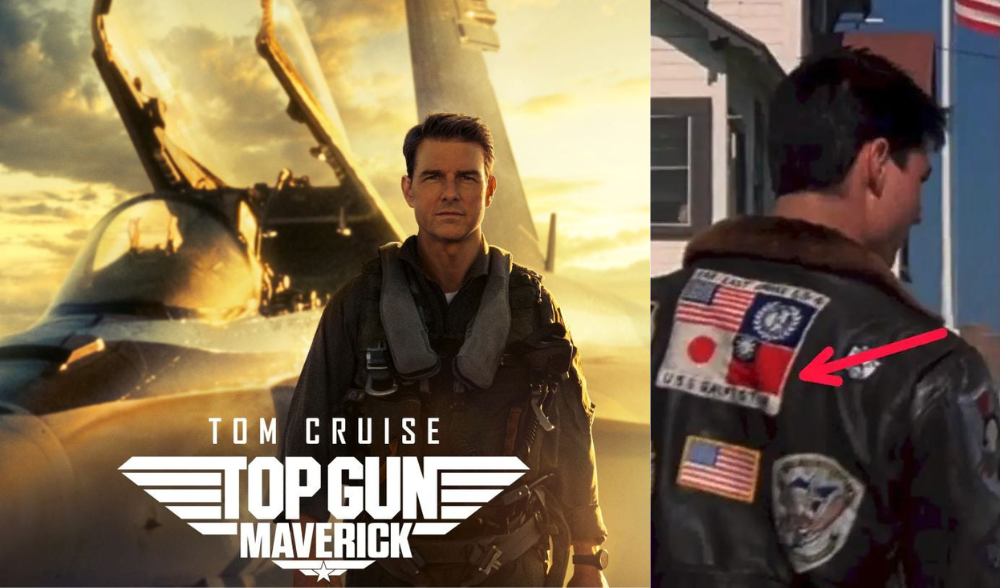ARYANA KHALILZADEH WRITES – Many people have waited decades for a sequel to the immensely popular 1986 action film Top Gun, and Hollywood delivered with a bang – and a provocative propaganda hit at China.
Thirty-six years after the first Top Gun film, its sequel, Top Gun: Maverick has broken the Memorial weekend box office record which, according to CBS news, has brought in $156 million in the first four days of the release. In Taiwan, people lavished praise on the film for another reason, which can be seen on Maverick’s leather bomber jacket, specifically the patches on the back of his jacket. The new box office hit Top Gun: Maverick has replanted Taiwan’s self-asserted official flag on Maverick’s leather bomber jacket after considerable previous controversy, which is putting the release of the film in mainland China in jeopardy.
Tom Cruise’s character Captain Pete “Maverick” Mitchell’s bomber jacket in the new film Top Gun: Maverick is once again decorated with the Taiwanese and Japanese flags, which is Hollywood’s latest and perhaps most surprising response to the growing criticism of the original disappearance of those flags for commercial reasons. The initial 2019 trailer for the sequel of the 1986 film showed Tom Cruise’s character wearing his signature leather bomber jacket: however, that time around time, both the Japanese and Taiwanese flags were oddly absent. The two flags were replaced by random emblems, which drew criticism as it appeared to be yet another example of how Hollywood abides by China’s political demands and is further evidence of China’s influence in foreign film production.
Paramount Pictures had been heavily criticized for removing the Taiwanese and Japanese flags from the back of Tom Cruise’s jacket to appease China and to prevent any conflict with Chinese company Tencent – the giant film distributor and production company – that was one of major financial partners of the film. In late 2019, Tencent withdrew from financing the project over concerns of the pro-U.S. military message of the film that would clash with the Chinese communist party ideology.
China is currently the world’s largest box office market. But Top Gun: Maverick has shown us that Hollywood has now gone in a different – arguably dangerous, arguably brave – direction. This film could be the sign of genuine change in Hollywood. It looks as if the days when film executives would comply with China’s strict censorships in exchange for access to screening films in China are numbered.
Beijing is known to have three requirements for Hollywood films seeking to access the Chinese market. They are referred to as the Three T’s (or called the Forbidden T’s): there must not be any mention of Tibet, Taiwan, or the Tiananmen Square tragedy. $600 Million worldwide later, without the China market involved, Top Gun: Maverick is a perfect case study of what Hollywood could do with their creative freedom: proceed without appearing to cater to the Three T’s.
Aryana Khalilzadeh is an LMU student member of the Asia Media Summer Internship Program.

